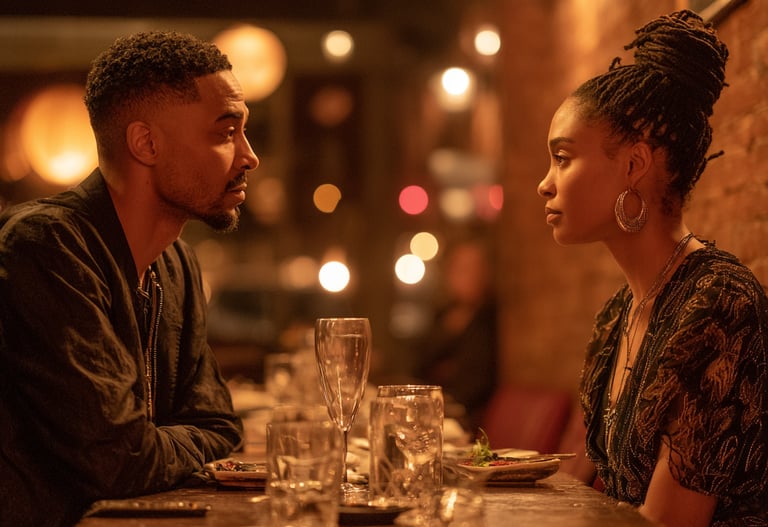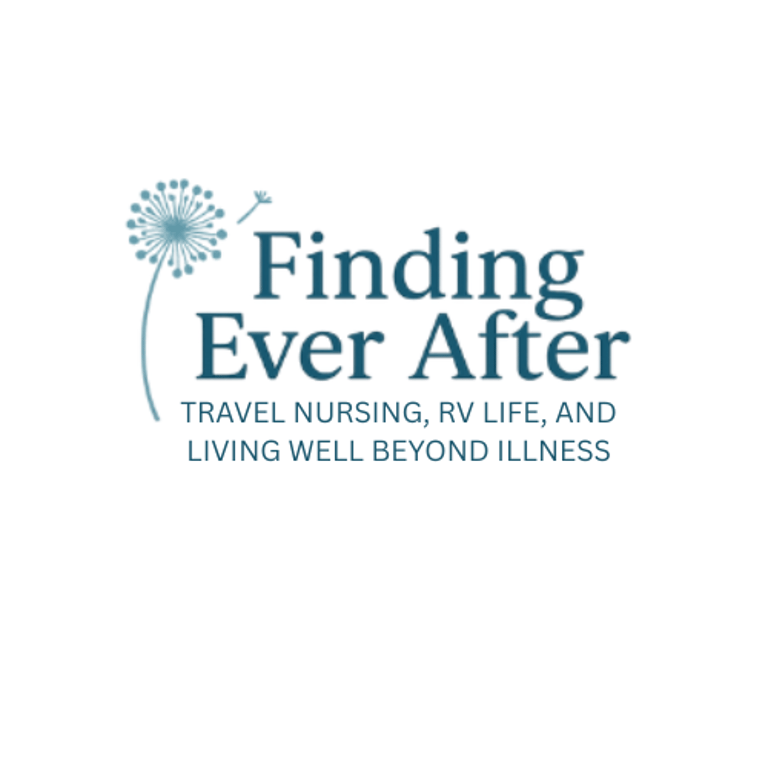Dating With Chronic Illness: How to Talk About Your Condition Without Shame
Dating with chronic illness can feel overwhelming. Learn how to talk about your condition with confidence, build connection, and find love without shame.
EMOTIONAL & SOCIAL REALITIES
Velvet Larrabee
8/25/20256 min read


Dating is nerve-wracking under the best of circumstances. Add chronic illness into the mix, and suddenly the “fun and flirty” side of dating can feel overshadowed by anxiety, shame, or fear of rejection. Maybe you’re worried about being a “burden.” Maybe you’re afraid someone will walk away as soon as they hear about your health challenges. Or maybe you’re just exhausted from wondering how much to share and when.
First, let me say this: you are not broken. Having a chronic illness doesn’t erase your worth, your attractiveness, or your right to love and be loved. What it does mean is that dating may look a little different for you—and that’s okay. Different doesn’t mean worse. It just means you’ll want to navigate it with honesty, self-compassion, and a little strategy.
This post will walk you through both the emotional and practical sides of dating with chronic illness—how to talk about your condition without shame, how to build connection, and how to remind yourself that you deserve love as much as anyone else.
Why Dating Feels So Different With Chronic Illness
When you’re living with chronic illness, dating is layered with complexities:
Unpredictability. You might cancel dates at the last minute because of a flare.
Energy limits. Dinner, drinks, and late nights may not be possible every weekend.
Stigma. People don’t always understand invisible illnesses.
Vulnerability. Sharing your health challenges means opening up in a way that feels risky.
On top of that, society tends to glorify independence and “having it all together.” When you can’t match that image, it’s easy to internalize shame—even though none of this is your fault.
But here’s the truth: dating with chronic illness isn’t about pretending to be someone you’re not. It’s about finding someone who values all of you—illness included.
Talking About Your Condition: The Fear vs. The Reality
One of the biggest questions people ask is: When should I tell someone about my illness?
The fear is usually: If I tell them too soon, they’ll run. If I wait too long, they’ll feel tricked.
Here’s the reality: there isn’t one perfect answer. It depends on your comfort level, the type of relationship you’re looking for, and how severe your illness is in daily life. But what matters most is that you share from a place of self-respect, not shame.
If someone walks away because of your health, that’s not a reflection of your value—it’s a reflection of their capacity. And wouldn’t you rather know that sooner rather than later?
When to Share: Timing Tips
Here are a few guidelines that may help:
Don’t lead with your illness. On a dating profile, you don’t need to list diagnoses like bullet points. Lead with your interests, passions, and personality. Let your health story come out in conversation when it feels right.
Bring it up before things get serious. If you’re considering exclusivity or intimacy, it’s fair to share. This prevents misunderstandings and allows you to gauge how they respond.
Use “date two or three” as a rule of thumb. By then, you’ll usually know whether the connection has potential. Waiting until there’s some trust can make the conversation easier for both of you.
Trust your gut. If you feel safe and comfortable, you can share earlier. If you’re still unsure about someone’s character, wait until you’re ready.
How to Talk About Your Chronic Illness Without Shame
The “how” is just as important as the “when.” Here are some compassionate, real-life strategies:
1. Keep it simple and clear.
You don’t owe anyone your entire medical history. You just need to give them enough to understand how your illness affects your daily life. For example:
“I have a condition that sometimes limits my energy. I can still do lots of things I enjoy, but I might need rest days or to adjust plans sometimes.”
2. Share what helps.
People often want to know how they can support you, but they don’t always know how to ask. You can guide them by sharing what makes things easier.
“Sometimes I get flare-ups, and if I cancel, it doesn’t mean I don’t want to see you. Just checking in with a text means a lot.”
3. Be honest, but don’t apologize.
Shame sneaks in when we frame our illness as a burden. Instead of saying, “Sorry, I know this is a lot to deal with,” try, “This is just part of my life, and I want you to understand it.”
4. Emphasize your whole self.
Your illness is just one piece of you. Remind them—and yourself—that you’re also funny, creative, adventurous, or nurturing. You are not your diagnosis.
Sample Scripts You Can Use
Sometimes it helps to have words ready. Here are a few gentle scripts you can adapt:
Early stage (casual):
“I want to share something with you. I live with a chronic illness, which means I sometimes have to be careful with my energy. I didn’t want to surprise you later, but it’s just part of my life. I still love doing things, I just might need flexibility.”Getting serious:
“Since we’re getting closer, I want you to know more about me. I have [condition], which means [brief explanation]. It doesn’t define me, but it is something I navigate daily. If you have questions, I’m open to answering.”If you need to cancel:
“I’m not feeling great today and need to rest. I was really looking forward to seeing you, and I hope we can reschedule soon. Thanks for understanding.”
How to Handle Rejection
Here’s the hard truth: some people will walk away. And it will hurt. But it doesn’t mean you’re unlovable.
Rejection happens to everyone in dating—people get ghosted over height, hobbies, or simply “not feeling it.” Your illness may be a factor for some, but that’s okay. It just means those people weren’t your people.
The right partner will see your resilience, your strength, and your heart—and will want to be part of your life despite (or even because of) the challenges.
Red Flags vs. Green Flags
Dating with chronic illness sometimes sharpens your radar for how people respond to vulnerability. Watch for these signs:
Red Flags: dismissive comments, pressure to “just push through,” lack of patience, making jokes at your expense, ignoring your boundaries.
Green Flags: curiosity without judgment, respect for your pace, checking in on your comfort, being flexible with plans, showing genuine care.
Green flags aren’t about someone “saving” you—they’re about partnership. Look for people who walk with you, not ahead of you.
Practical Dating Tips for Chronic Illness
On the more practical side, here are ways to make dating easier and more fun within your limits:
Plan low-energy dates. Coffee, a picnic, a walk in the park, or board games at home can be just as romantic as a big night out.
Communicate clearly. If you need shorter dates, say so. If mornings are better than evenings, share that.
Use apps mindfully. Online dating lets you set boundaries, screen people, and connect at your own pace.
Prioritize safety. Always meet in public first, share your plans with a friend, and trust your instincts.
Keep your sense of humor. Flare-ups, last-minute changes, awkward conversations—they’ll happen. Laughing together builds connection.
Reframing the Story You Tell Yourself
Maybe the most important part of dating with chronic illness isn’t what you tell your date—it’s what you tell yourself.
You are not a burden.
You are not “too much.”
You are not broken.
You are a whole, valuable person who happens to have an illness. The right partner won’t see you as a liability—they’ll see you as someone worth cherishing.
Dating isn’t about hiding parts of yourself to be accepted. It’s about showing up as you are and finding someone who says, “Yes, I want to walk this journey with you.”
Final Thoughts: Love Is Still Possible
Living with chronic illness can make dating feel daunting, but it doesn’t erase your chances for love, intimacy, or companionship. It might take patience. It might require some honest conversations. It might mean redefining what romance looks like. But it’s absolutely possible—and you deserve it.
Start by reminding yourself that your illness is not your shame to carry. Share your story with courage and compassion. Let the right people in. And trust that the love you deserve will see all of you—and choose you anyway.
Before you even think about dating, it helps to feel grounded in your new reality. My guide: Living With Chronic Illness: A Complete Guide to Thriving Beyond Your Diagnosis can give you that starting point.
Dating is one part of life with chronic illness. To explore more on thriving beyond your diagnosis, check out my guide here.
